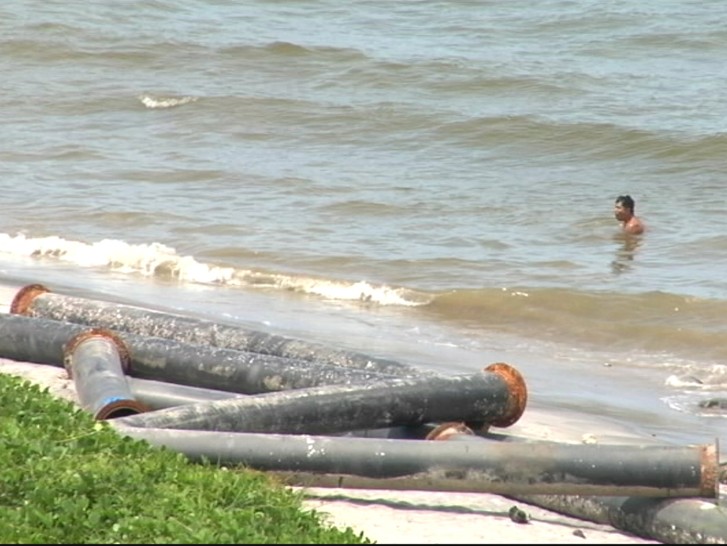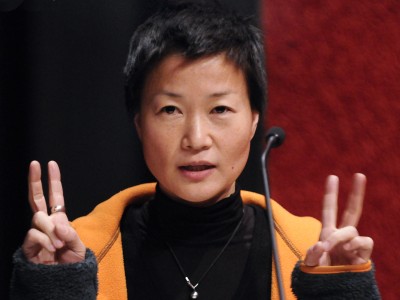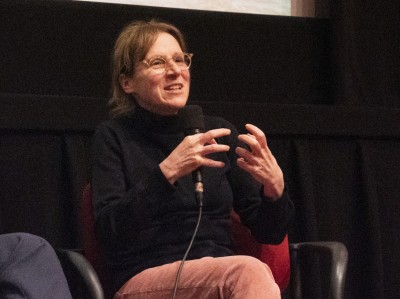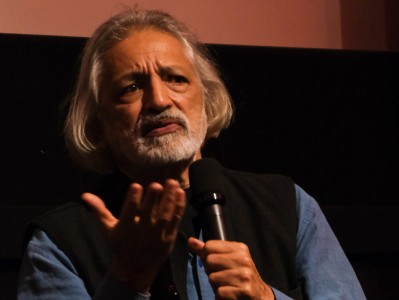
Wake (Subic) introduction by David Pendleton.
Transcript
John Quackenbush 0:00
March 13, 2016. The Harvard Film Archive screened Wake. This is the introduction by HFA Programmer David Pendleton.
David Pendleton 0:11
[MISSING AUDIO] to our screening of the latest film by John Gianvito, Wake (Subic). As always, we ask that you turn off your devices while you're here in the theater, and while the house lights are down, for the comfort and concentration of those around you.
Many of you probably remember a few years ago, when we presented the first part of the diptych of documentaries that John is calling For Example, the Philippines. That first part was called Vapor Trail (Clark) from 2010. And we were proud to present the local premiere of that film then. The Harvard Film Archive and John Gianvito have quite a history between them. John was one of my predecessors, one of my most valued predecessors, as the programmer. The titles are slightly different, and the hierarchy was a bit different, but John was the person who really kept the programming at the Harvard Film Archive going for a few years, and really made it one of the best places in the country, I think, to see cinematheque programming.
He's also been making films for just about thirty years now. And it was really with his fiction feature, The Mad Songs of Fernanda Hussein, in 2001, that John became recognized as one of the most compelling independent filmmakers in the United States, and someone to watch. He's been working on this project for just about a decade now. It started when he was finishing his film Profit Motive and the Whispering Wind, which was released in 2007, and has already become a landmark, in some ways, of political and experimental documentary in the U.S. And these two films—Vapor Trail (Clark) and Wake (Subic)—follow in that tradition, I would say.
The film, as you know, is a lengthy film, as was the first part. And this has all kinds of implications and reasons that we can talk about later, and I'm sure John will address. But what it really does is give John time to do a number of things. To witness the suffering of people who've been affected by the toxic waste left behind by the two U.S. military bases in the Philippines that are the basis for these documentaries. This afternoon's film Wake (Subic) is obviously about what happened at the site of the Subic Bay Naval Base. And also to talk about the history of why those bases were there, the history between the U.S. and the Philippines, which has been almost forgotten, whitewashed, we could say here in the U.S., given its incredible violence. And it also allows him to witness the work of the people who are working to do something about the situation. In this way, I think the closest precedent to what John is doing is the work of two of the great Japanese filmmakers of the end of the 20th century, Japanese documentary makers: Noriaki Tsuchimoto, who made a number of epic films about the people affected at Minamata, by the lead disaster there, and the films of Shinsuke Ogawa, who worked with this mixture of film essay, observation, and a real active cinéma verité participation and a very pointed political direction in his work, as well. The duration of this film raises all kinds of questions about the relationship between past, present, and future. It gives the film a real monumental weight. We might notice the title, Wake. There's a way in which this is a work of mourning. And so the film is also about the temporality of mourning, the temporality of witnessing, of remembering, and the question of justice.
There is a 10-minute intermission. [AUDIO ENDS]
© Harvard Film Archive
Related film series
Explore more conversations
So Yong Kim

Masao Adachi

Kelly Reichardt

Anand Patwardhan

